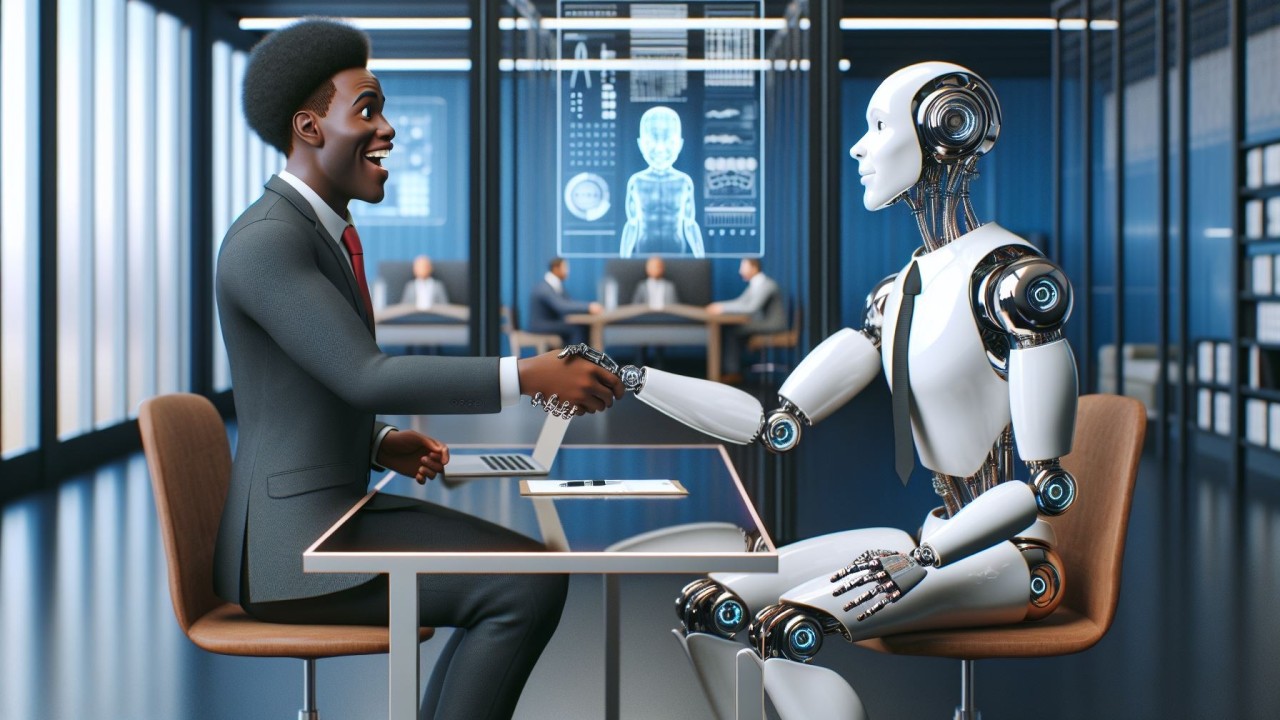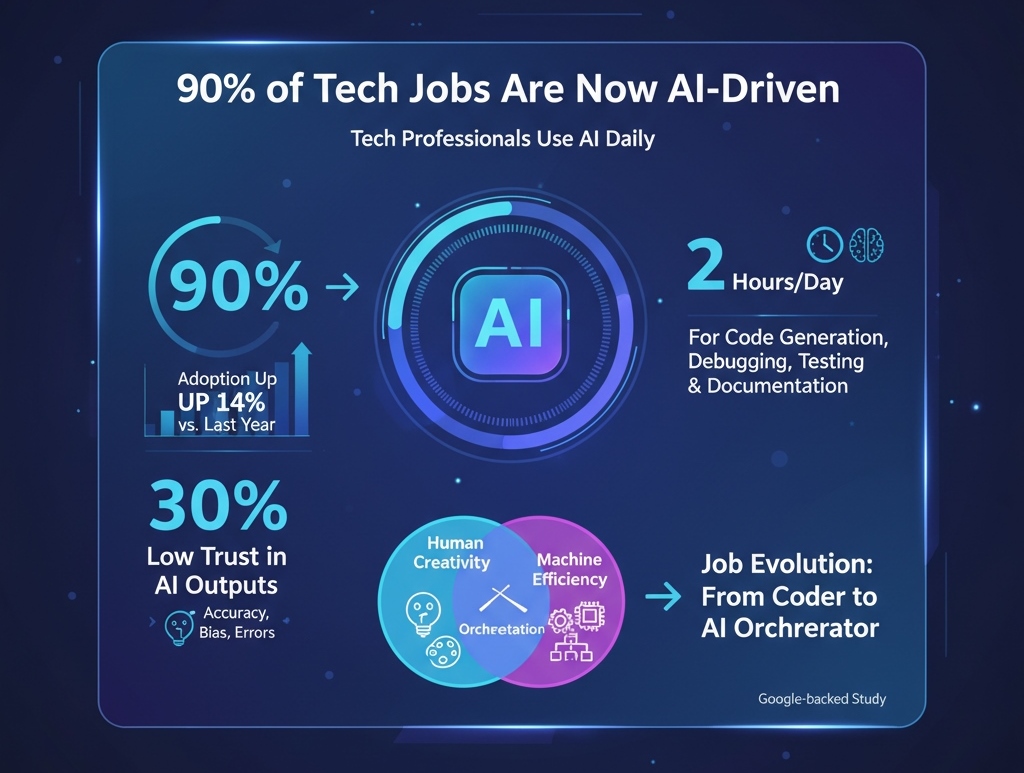Commentary: 90% of Tech Jobs Are Now AI-Driven
AI adoption is redefining engineering roles, shifting focus from coding to orchestration

Tech professionals increasingly rely on AI tools for everyday tasks, transforming how engineering teams work.
Steven
Gates AI
For years, conversations about artificial intelligence in the workplace centered on gradual adoption and cautious experimentation. But according to a new Google-backed study, the landscape has shifted dramatically: 90% of professionals in technology now use AI tools as a regular part of their jobs. What was once considered optional is quickly becoming standard practice, reshaping not only how work is done but what it means to be an engineer in the AI era.
The study highlights how deeply integrated AI has become in everyday workflows. Engineers are spending around two hours each day using AI for critical tasks like code generation, debugging, testing, and documentation. Instead of handling repetitive work, professionals are leaning on AI to accelerate development cycles and eliminate bottlenecks. This shift allows workers to devote more time to higher-level responsibilities such as designing system architectures, coordinating across teams, and ensuring that technology aligns with business goals.

Adoption is rising quickly. Compared to last year, the share of tech professionals regularly using AI tools has grown by 14%. That level of acceleration signals not just curiosity, but reliance. Engineers are no longer just experimenting with AI—they are actively building workflows around it. For companies, this means organizational structures and job descriptions may soon look very different from what they were just a few years ago.
Yet the transformation is not without challenges. About 30% of respondents reported low trust in AI outputs, citing concerns about accuracy, bias, or errors that could cascade through complex systems. These concerns mean human oversight remains critical. Interestingly, the study also suggests that despite the rapid uptake of AI assistance, programming fluency and a strong grasp of fundamentals are still essential. Rather than replacing technical literacy, AI shifts the emphasis toward understanding when and how to apply machine-generated work effectively.
What emerges is less a story of job loss and more one of job evolution. Engineers are not being replaced; they are being repositioned. The skills that matter most in this new environment are not just coding ability, but also the capacity to guide, integrate, and elevate AI outputs into reliable, scalable systems. As AI continues to spread through the tech industry, the role of the human engineer is being redefined—from writing every line of code to orchestrating the collaboration between human creativity and machine efficiency.
Credit:
Google says 90% of tech workers are now using AI at work
By Lisa Eadicicco
Reference Link:
https://www.cnn.com/2025/09/23/tech/google-study-90-percent-tech-jobs-ai
